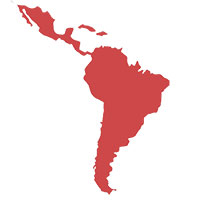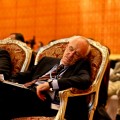Trickling Progress at COP20 on Day 4
Cleo Verkuijl | December 5, 2014.
Thursday in Lima, Peru at the UN climate change negotiations saw an intensified focus on our common future. When discussing climate change, it’s hard not to think about tomorrow, and the role of future generations in shaping the debate. Even though business as usual was taking place between countries, young people and activists added a very welcome sense of dynamism during the official ‘Young and Future Generations’ day.
Inside the negotiating rooms, long-term mitigation goals that should be incorporated into the Paris agreement was discussed. Least Developed Countries called for limiting temperature increase below 1.5°C and the EU supported a 2°C goal. New Zealand came out in favour of a target of net zero emissions by 2100, which would lead to a dismal common future, even if the most optimistic climate modelling proves to be accurate.
Tension between developed countries and emerging economies continued to grow, centring around the notion of ‘evolving’ responsibilities under the new convention.
In a move welcomed by the G77+China group as well as members of civil society, the African Group tabled a proposal on financing to replace the existing non-paper drawn up by the co-chairs. Developing countries earlier this week had slammed the current text, which they see as attempting to rewrite key principles of the UN Framework Convention on Climate Change (UNFCCC).
Perhaps the biggest negotiating victory of the day was the co-chairs’ decision to allow for government proposals to be displayed on screens in the negotiating rooms. A seemingly minor issue that had thus far been stalling talks.
Against this tired backdrop, young people throughout the day brought vitality and hope through an ambitious proposal for the 2015 agreement and a series of prominent actions. An intergenerational dialogue between youth and high-level delegates took place where both sides highlighted their ambitions and vision for ‘a liveable world for all’.
Youth from around the world also sat down for what was to be a high-level briefing with UNFCCC executive secretary Christiana Figueres and the president of COP20, Manuel Pulgar-Vidal, which quickly turned into a much more informal dialogue.
Figueres highlighted the need for inclusion of timely decarbonisation as a central goal for the 2015 agreement and encouraged youth everywhere to “talk to delegates about including the topic in texts” and “exploit your potential”.
As the negotiations start to wrap up for week one, recent progress on finance and the looming threat of yet another typhoon in the Philippines may change current dynamics.













comment